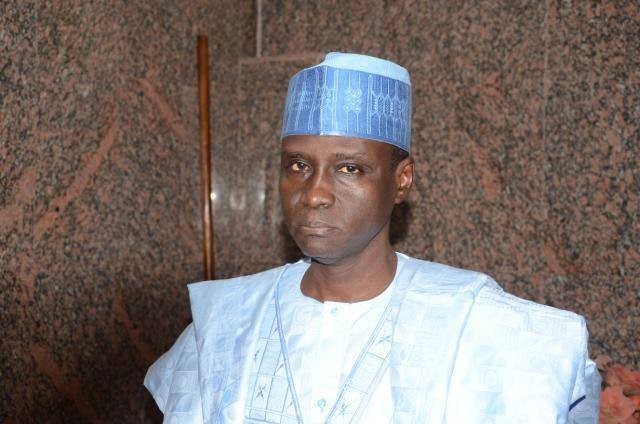The senator representing Borno North Senatorial District, Tahir Monguno, says he dropped out of school while he was acquiring his primary education because he wanted to be attractive to girls in his community.
Mr Monguno, a member of the All Progressives Congress (APC), said his decision to drop out from school was influenced by a traditional practice in his community where girls will prefer to mingle and dance with men who are commercial drivers during a festive season.
He noted that to become one of favourites for the girls to dance and have fun with, he dropped out from school while in primary seven and started the commercial driving job within his community.
Mr Monguno recounted his experience on Wednesday on the floor of the Senate while contributing to a motion sponsored by Adebule Oluranti (APC, Lagos West) on the need to find a solution to the increasing number of Out-of-School children in Nigeria.
“Why I decided to contribute to this motion is against the backdrop of my experience in life while growing up.
“Mr President, distinguished senators, it may interest you to know that while I was at primary seven, out of my own violation, I decided to drop out from school.
“The reason why I dropped out of school was because in my community, then, the vogue was to be a driver because once you are a driver, you are the talk of town and the elite in my community.
“When we go for festivities, there is a festivity in my community whereby boys and girls will line up and then girls will come and invite you to dance with them. So, when we line up together, girls will only come and invite drivers to dance with them. They will not invite those of us who are not drivers.
“I now said okay, if that is the case, let me also go and be a driver so that when we line up for festivities, girls will also come and invite me to dance with them. So, because of that, Mr President, I dropped out of school,” he said.
Mr Monguno, now a trained lawyer, said he was lucky to have returned to school because one of his uncles insisted that he must attain western education.
“But because of the persistent and the consistency of my late uncle of blessed memory whom I grew up with, I finished my secondary school, primary school, went to the university, went to law school, called to the bar, became an accountant general, five times member of House of Representatives and now a distinguished Senator.
“At that period, who dropped out of school and became a driver, today, the difference is clear. In fact, it was not more than three months ago that I had to buy cars to support some of my classmates that have become drivers,” he added.
Mr Monguno narrated the story of his early life to underscore the disadvantages of children quitting formal education to pursue other interests.
Out-of-school children
According to the United Nations Children’s Fund (UNICEF), one in three children in Nigeria is out of school, totalling 10.2 million at the primary level and 8.1 million at the junior secondary school (JSS) level.
It is estimated that one in every five out-of-school children around the globe is in Nigeria. Even though basic education is legally free and compulsory in the country, about 10.5 million children aged 5 to 14 years are out of school.
About 50 per cent of these children live in the northern region, known to be severely affected by the Boko Haram insurgency. In addition, only 61 per cent of children between the ages of 6 to 11 years attend primary school regularly (UNICEF, 2018).
There are a number of factors that contributed to the increasing number of Out-of-School children in the country such as early/child marriage, economic barriers, conflict, socio-cultural norms, and lack of inclusive policies/practices in schools.
Senate resolution
At the end of the debate on the issue on Wednesday, rhe Senate called on state governments to ensure free and compulsory education of children in their respective states as prescribed in the Universal Basic Education Act, 2004.
It also urged the ministries of justice in the states to establish mobile courts for the enforcement of the provision of the UBE Act, with a view to reducing the high rate of Out-of-School children in the country.
The upper chamber further mandated its Committee on Education (Basic and Secondary) to engage the Federal Ministry of Education to find a lasting solution to the issue of out-of-school children.
Support PREMIUM TIMES’ journalism of integrity and credibility
Good journalism costs a lot of money. Yet only good journalism can ensure the possibility of a good society, an accountable democracy, and a transparent government.
For continued free access to the best investigative journalism in the country we ask you to consider making a modest support to this noble endeavour.
By contributing to PREMIUM TIMES, you are helping to sustain a journalism of relevance and ensuring it remains free and available to all.
Donate
TEXT AD: Call Willie – +2348098788999





